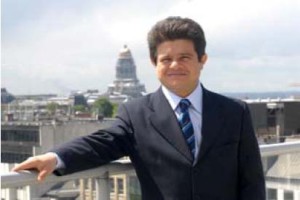What are the benefits of smart grids?
Smart grids could be described as an upgraded electricity network in which the addition of information and communication technologies (ICT) plus intelligent metering and monitoring systems enables suppliers and consumers to communicate with each other.
They can efficiently integrate the behaviour and actions of all users connected to it. They can help achieve an economically efficient, sustainable power system with low losses, a more secure supply, and greater safety.
At what stage of development are smart grids?
The last two years have seen important regulatory achievements to encourage the uptake of smart grids at both international and European levels. In 2011, the EU Commission submitted to the European Parliament the document, “Smart grids: from innovation to deployment”, mainly in response to the urgent need to adopt European standards for smart grids. In Italy, thanks to the investment made by its distribution system operator we are at the forefront of the field with 32 million digital meters installed which have improved network remote control and automation.
Where are the key markets for smart grids right now?
Smart grids have a large role to play in all countries where renewables are increasingly being adopted. For example, Germany and Japan have put smart grid development at the core of their post-Fukushima energy strategy. The US and South Korea are actively researching and developing smart grid technologies to increase power efficiency and the contribution of renewables to electricity generation. China is focusing on the research, development and deployment (R&DD) of ultra-high-voltage (UHV) transmission technology and flexible power transmission technologies.
What changes will you see in the next five years as developing and emerging economies become ever more power-hungry and urbanised?
Several developing countries (such as China, India, and Brazil) are already seeking to take a step up in developing power grids with higher carrying capacity, greater security levels, and a wider range of resource allocation so as to underpin their socioeconomic goals. In the next few years, I foresee companies and research institutes from developing countries to take a larger role when it comes to forming standards and developing technologies for smart grids.
How could smart grids help improve energy access in less developed regions of the world?
In less developed countries, energy access refers to the problem of affordability. The main issues affecting energy affordability in those countries are the poor interconnection between regions and the lack of local grids and interconnection between them. Smart technologies for decentralised energy production is a good way to address energy poverty in the short term, but in the long term having large energy infrastructures is the only way that could guarantee widespread energy access at affordable prices for poor populations. To this end, existing smart transmission technologies could help achieve high-efficiency interconnection between energy sources and load centres. A good example is the potential for large hydro in central Africa to supply its sub-Saharan neighbours.
What will be the focus of the 2nd Smart Grid International Forum?
The Forum, now running for the second time, will analyse the progress in international programmes and projects related to smart grids and smart cities. It will also pay particular attention to the financing of research and innovation programmes beyond 2013 in the EU.
What do you hope to achieve there?
The Forum aims to highlight the economic, industrial and social value of smart grid and smart city projects. At a national Italian level, the event aims to support and showcase the efforts of institutions and local authorities that have joined associations, businesses and universities in effectively addressing the complex issue of making energy systems more sustainable. Clearly, we need a stable and compelling regulatory framework in Europe for smart grids. This is the technology that will enable a truly unified energy market in Europe, putting an end to its current fragmentation into 27 single national markets.
The 2nd Smart Grid International Forum will take place on 25–26 in Rome, Italy. It is being co-organised by WEC Italy.
Visit the event website for more details.






